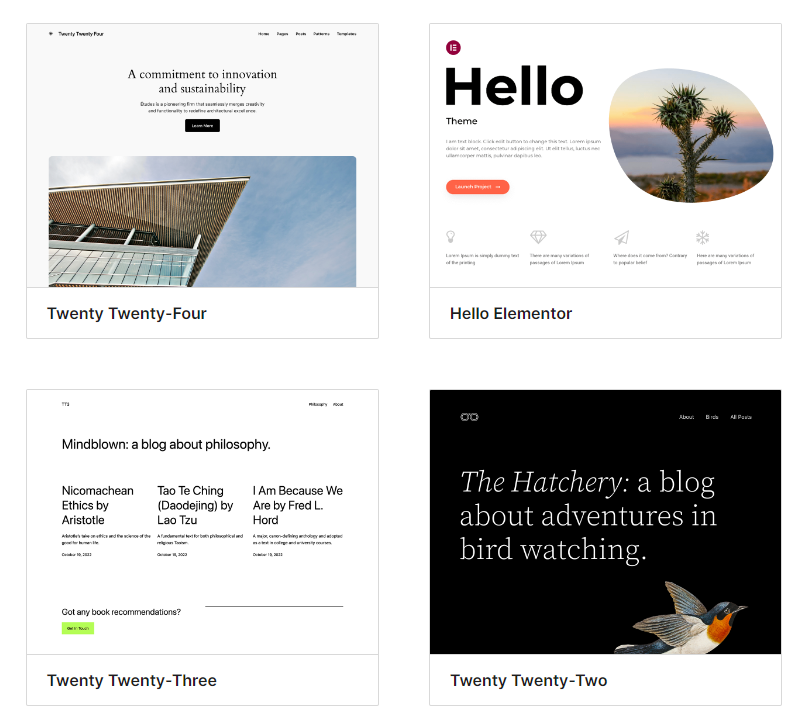A website is no longer a luxury but a necessity for coaches and businesses of all sizes. However, with numerous website builders available, choosing the best platform can feel downright overwhelming. Wix and WordPress are two popular contenders, each offering distinct advantages and disadvantages. These website builders also cater to different needs, so selecting the right one depends on your priorities
Wix: The Pre-Made Website Meal
Maybe you are familiar with those delicious meal kits delivered straight to your door. Everything you need is conveniently packaged together: the pre-cooked entree, sides, salad dressing, herbs, and even dessert! In the online world, that’s Wix. The prepackaged meal.
Hosting Provider
With Wix, you pay a monthly subscription that covers both the website builder tools and the hosting for your website.
Hosting is like renting space in a server room. A server is a computer that stores websites and makes them accessible on the internet. When you purchase hosting, you’re essentially renting a space on a server to store your website’s files, images, and other content. You can also think of hosting as your pantry or fridge. It’s where all the ingredients (your website’s files) are stored and prepared. With Wix, you don’t have to worry about having a kitchen or fridge (hosting) or setting it up – it’s all prepped and ready for you in the monthly price you pay Wix.
Templates for Easy Customization
Wix offers pre-designed templates, like pre-cut vegetables and seasoned meat on a tray. These templates act as a starting point for your website’s look and feel. This is where you choose how your website will look when visitors land on it.
You can choose from various styles and themes to suit your industry or personal preference. While Wix allows some customization, it’s similar to rearranging those pre-cut ingredients on the tray – you can’t completely change the core recipe (website structure) itself.
Pricing
Wix offers different subscription tiers, like different meal delivery services might offer single or family meals. (Once upon a time, Wix offered a free plan that allowed you to try Wix and build a basic website. Adding features and removing Wix ads required upgrading to a paid plan.) Today, the basic plan starts at $17 per month. That’s expensive compared to WordPress, which is free. Keep in mind that with WordPress, you only need to find a hosting provider which is around $2.95 per month for the first year. And around $10.99 per month after the first year.
Low Learning Curve
Wix’s user-friendly interface is like having clear instructions with pictures. The drag-and-drop editor lets you visually arrange elements like text, images, and buttons on your website, similar to placing the prepped ingredients on a plate. This ease of use makes Wix ideal for beginners who want a quick and hassle-free website creation experience.
All-in-One Convenience vs. Budget-Friendly Freedom
With Wix, you pay a monthly subscription that takes care of everything – website creation tools and website hosting. It’s a straightforward approach, ideal for those who prefer a single point of contact.
WordPress.org, on the other hand, lets you build your website for free (though you’ll need to pay a separate hosting company to store your website’s data). This offers more control over costs, but requires some additional setup steps.
WordPress: The Free & Open Source Platform
The DIY Website Recipe
WordPress is more like a detailed recipe that empowers you to create a website from scratch. It requires gathering all the ingredients and following the instructions, but the final product can be truly unique and tailored to your specific needs.
Separate Hosting
Unlike Wix, which offers hosting included with your website build, WordPress allows you to source your own “kitchen.” This means choosing and paying for a separate hosting provider. This hosting provider acts as your website’s home, storing all the data and files that make up your website.
WordPress is free. That means that you only pay for the cost of hosting (renting space in a server). With WordPress you have the freedom to choose which hosting provider you want. With Wix, or any other online website builder, you don’t have the option to choose.
Choosing the right hosting provider is crucial, as it affects your website’s speed, security, and scalability.
Templates and Plugins Expand Possibilities
WordPress offers a vast library of themes, similar to choosing a specific recipe from a cookbook. These themes provide the basic structure and visual design for your website. But unlike the pre-made meals from Wix, you can heavily customize the themes in your WordPress with plugins.

Plugins add specific functionalities to your website, such as contact forms, e-commerce features, or SEO optimization. The unlimited number of themes and plugins available allows you to create a website that is truly unique and caters to your specific needs.
Higher Learning Curve
Compared to Wix, WordPress.org requires more effort. You’ll need to learn basic WordPress concepts, choose and manage hosting, and potentially install/configure themes and plugins. This learning curve might initially feel steeper, but it ultimately gives you complete control and flexibility over your website’s creation and growth.
Pricing
Wix offers a range of pricing plans, from free to premium, with features like custom domains, increased storage, and online stores.
WordPress.org itself is free to use, akin to the recipe itself costing nothing. However, you’ll need to pay for the ingredients – a hosting plan and potentially premium themes or plugins. While the cost depends on your choices, it allows you to tailor your website creation process to your budget.
A Word About WordPress Two Options: WordPress.org and WordPress.com
It’s important to distinguish between WordPress.org (self-hosted) and WordPress.com (hosted). WordPress.com offers a hosted solution similar to Wix, but with less customization freedom.
When we mention WordPress.org in this comparison, we’re referring to the self-hosted version that provides the most control and flexibility.
Although it requires some initial setup and learning curve, WordPress.org offers immense flexibility and control over your website. You can choose the hosting provider that best suits your needs, pick a theme that perfectly matches your vision, and add plugins precisely tailored to your specific website functionalities.
My Personal Recommendation
When I started building websites back in 2014. I initially loved the ease of use that Wix offered, but eventually found its limitations to be a hindrance. Although I was able to rank my website on the first page of Google, my excitement was short-lived. I felt constrained by the platform’s proprietary hosting and design restrictions. As my website’s needs evolved, I realized that Wix was no longer the best fit, and transitioning to WordPress proved to be a complex process.
The Veredict
While Wix offers a convenient platform for beginners, its proprietary nature can make it difficult to transition to other platforms. One of the main challenges is domain ownership. When you use Wix, you don’t own the domain name; Wix acts as the intermediary. This means that if you decide to leave Wix, you’ll need to transfer your domain name to a new provider and potentially redirect it to your new WordPress website. This process can be time-consuming and require technical knowledge.
Additionally, Wix’s proprietary design elements and code can make it difficult to directly export content to WordPress, often necessitating manual reconstruction.
In summary, while Wix can be a convenient starting point, the challenges of transitioning to a more flexible platform like WordPress can outweigh the initial benefits. If you anticipate future growth, customization needs, or the potential to migrate to another platform, it’s worth considering WordPress from the outset.


